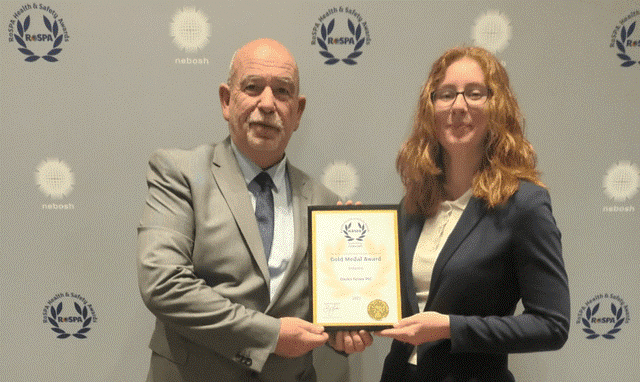Adam Tetz, Director of Worldwide Marketing at Peli BioThermal writes exclusively for ITM about the current challenges facing the cold chain market with the vaccine rollout
As millions of COVID-19 vaccines are transported globally, the pandemic continues to pose significant cold chain challenges.
In a rapid response the pharmaceutical manufacturing and supply chain sectors are working together in the fight against the virus. They’re collaborating to contend with the cold chain challenges associated with the deployment and safe transportation of vital vaccines.
These challenges will continue as vaccines with varying temperature requirements for storage and shipment are approved and transported worldwide.
Cold chain protection throughout this distribution process is essential. This can be packaging or buildings and vehicles, but most crucial is a process to establish an unbroken cold chain. Colder temperatures are more difficult to maintain, as they may require more exotic coolants, such as dry ice to achieve -80C.
Temperature conditions are determined by the requirement of the vaccine or therapeutic that’s developed and approved. Some vaccines, and more as time advances, will require more easily controlled temperatures during transport, storage and administration, such as -20C or +5C and these can be achieved with the existing network of refrigerators and freezers in situ at hospitals and clinics.
The real challenge to the cold chain, will be the scale of vaccines required to immunise the global population. Even for vaccines requiring -20C, the volume of hundreds of millions of doses being required within regions, will challenge existing cold chain infrastructure.
The safe distribution of COVID-19 vaccines is essential to ensure they are not inert or harmful when administered to a patient and to ensure the vaccines are effective when given. Any temperature controlled drug product that is out of its required temperature will lose its intended benefits eventually.
Drug products can often be stored for weeks or months at their required temperature. This required temperature varies by pharmaceutical, but deep frozen materials, if not protected, will quickly depart from their required temperature range and lose their efficacy
The first of the approved vaccines required a deep-freeze delivery chain which was where the supporting infrastructure of freezer farms came to the fore.
These facilities allow the long-term storage of vaccines requiring storage of -70C for several months. Subsequent vaccines in development and recently approved will also need to be transported within tight temperature requirements utilising road and air transportation.
Any approved vaccines then need to be manufactured at a rate of millions of doses per week. That’s when we will see a critical crunch of the volume versus the capacity within both the clinical trial period and then the subsequent worldwide distribution of approved vaccines.
We already have to address the current challenges within cold chain logistics operations where air transport capabilities are down because so few passengers were flying due to the pandemic.
As a response from the airline industry, we’ve seen a number of passenger jets being converted to cargo jets because fewer passenger planes are flying. The demand for air cargo capacity is expected to continue to rapidly rise due to the ongoing development of COVID-19 vaccines. The demand will increase significantly when it comes to the distribution of the vaccine during the clinical trials, which is expected to continue within the next 12 months.
The sheer scale of the global distribution of approved vaccines was summed up by IATA (International Air Transport Association) which highlighted how just providing a single dose to 7.8 billion people would fill approximately 8,000 747 cargo aircraft.
While land transportation will also be utilised, IATA acknowledged that vaccines cannot be deployed worldwide without the significant use of air cargo as the industry faces its largest single transport challenge.
It also recognised the need for appropriate facilities and infrastructure to be in place and staff appropriately trained to handle time and temperature-sensitive vaccines alongside acknowledging the need for heightened security measures to be in place as vaccines are highly valuable commodities. Further highlighting how essential it is that shipments remain secure from tampering and theft.
All the latest developments are going to have a major impact within the industry and cold chain packaging manufacturers probably won’t be able to manufacture enough packaging necessary to meet the entire demand.
Therefore, what we are seeing within the sector is a lot of multiple sourcing via different packaging vendors. This will be necessary to meet the demands of the varied pharmaceutical manufacturers as they try and distribute vaccines during both the clinical trial phase and approved phase.
This is also true for COVID-19 therapies being developed by major pharmaceutical manufacturers which also demand tight temperature transportation requirements.
With such specific therapies being deployed to help fight the active disease in seriously ill patients, this additional requirement puts extra pressure on the already restricted resources and challenges for cold chain logistics.
Temperature controlled packaging innovation
While it’s predicted the pandemic will continue to cause shock waves throughout our industry for the next year to two, the response from the sector has been rapid.
Innovative temperature controlled packaging products are being adapted at unprecedented rapid rates to support pandemic clinical trials and ensure the global distribution of successful COVID-19 vaccines.
These packaging products, some of which utilise phase change material and dry ice systems, will help ensure pharmaceutical companies have the correct temperature controlled packaging at all phases of drug discovery and distribution with temperature ranges of minus 80 degrees Celsius to minus 20 degrees Celsius.
In response organisations operating within the cold-chain logistics sector are actively innovating, researching and developing technologies that hadn’t been developed before to assist with this challenge.
In a bid to meet the rising requirements of the pharmaceutical companies, some cold chain packaging manufacturers are actively developing and converting products to provide a dry ice capacity.
While initial requirements were for deep frozen and frozen capabilities for the shipment of vaccines during clinical trial and approved for wide immunisation stages, most clinics and hospitals, where patients will be treated, have limited freezer for deep frozen temperatures (-65C and -80C).
Subsequent coronavirus vaccines were expected to require refrigerated or frozen (-20C) temperature, once at an approved stage and the vaccines are being mass produced and distributed by air and ground.
In response to the lack of deep frozen infrastructure worldwide, pharmaceutical manufacturers continue to invest significant effort to have their approved COVID-19 vaccines gain approval for storage and distribution at frozen or refrigerated temperatures.
That temperature difference changes what’s required for manufacturing and transportation via truck or air to what is required for storage on route to what is required in terms of storage at designated healthcare locations when the vaccine is administered to patients.
There must be an unbroken chain of temperature control from the manufacturing plant to the physician’s office.
Airplanes, trucks, warehouses must all be part of that cold chain network to deliver a safe and effective immunisation for each patient.
Clinical trials impact
Another impact related to the pandemic included many of the clinical trials for other drugs being slowed or delayed. This was partly because the resources at the pharmaceutical manufacturers were being dedicated to the ongoing COVID-19 vaccine and therapy development.
Part of these delays we’ve seen in other drug clinical trials were likely because people are less likely to want to leave their homes to participate in the trials as they might be concerned of the risks relating to the pandemic.
The pharmaceutical companies might also be concerned about the interactions between COVID-19 and the trialed drug products. There may be a fear of skewing of the results of the trialed drugs and their efficacy and how the pharmaceutical companies can isolate COVID-19 related impact from normal impact on results discovered during drug trials.
The clinical trial participants might be worried if they take part in the clinical trial for a different drug that then might have an impact on their own COVID-19 risk.
Whether it might mean they are more likely to catch the disease, are more susceptible to succumbing to the full-blown infection or if it might make it less likely that a COVID-19 vaccine will have the desired impact on them.
Going forward, what we’re going to see is more rigorous questioning from the pharma manufacturers of their clinical trial participants. Also, assurances will be given to patients in trials which are not COVID-19 related, that there are sufficient safety measures in place and in the long run it will not impact on them adversely when receiving a COVID-19 vaccine.
We’re likely to see a slowdown in other parts of pharmaceutical development for clinical trials because of fears related to caution or risk-aversion.
Clinical trials for other drug products may be slowed, due to the pharmaceutical companies’ resources being dedicated to developing COVID-19 vaccines and therapies while at the same time trying to move forward with clinical trials for other diseases.
Adam Tetz, Director of Worldwide Marketing at Peli BioThermal
While it’s predicted the pandemic will continue to cause shock waves throughout our industry for the next year to two, the response from the sector has been rapid. Innovative temperature controlled packaging products are being adapted at unprecedented rapid rates to support pandemic clinical trials and ensure the global distribution of successful COVID-19 vaccines.
These packaging products, some of which utilise phase change material and dry ice systems, will help ensure pharmaceutical companies have the correct temperature controlled packaging at all phases of drug discovery and distribution with temperature ranges of minus 80 degrees Celsius to minus 20 degrees Celsius.
In response organisations operating within the cold-chain logistics sector are actively innovating, researching and developing technologies that hadn’t been developed before to assist with this challenge.
In a bid to meet the rising requirements of the pharmaceutical companies, some cold chain packaging manufacturers are actively developing and converting products to provide a dry ice capacity. While initial requirements were for deep frozen and frozen capabilities for the shipment of vaccines during clinical trials and approved for wide immunisation stages, most clinics and hospitals, where patients will be treated, have limited freezer for deep frozen temperatures (-65C and -80C).
Subsequent coronavirus vaccines were expected to require refrigerated or frozen (-20C) temperature, once at an approved stage and the vaccines are being mass produced and distributed by air and ground.
Robert Sutton, Head of Logistics Cluster, Abu Dhabi Ports
We have recently acquired 11 new specialised refrigerated vehicles by MICCO Logistics to help aid the vaccine supply chain for Covid-19.
The investment in advanced technology places Abu Dhabi in a strong position to not only offer extended services to its healthcare sector partners, but also fulfil the goal of the Hope Consortium to end the pandemic and help chart a sustainable pathway to recovery. Abu Dhabi Ports is committed to diversifying and extending its logistical solutions to accommodate all types of vaccines on the market through our specialised final-mile fleet.
By working closely with the Department of Health – Abu Dhabi (DoH), we are ensuring that MICCO is equipped with the most advanced chilled vehicles currently available on the market, elevating our emirate’s logistics capabilities for years to come.
Equipped with complete data loggers and advanced temperature monitoring, the brand-new fleet will be capable of carrying vaccines, medical equipment, or pharmaceutical products from Abu Dhabi Ports’ 19,000 sqm cold and ultra-cold storage facility located at Khalifa Industrial Zone Abu Dhabi (KIZAD) to healthcare centres across the UAE. The fleet has been fitted with cooling equipment to support handling of vaccines requiring a temperature range of 2°C to 8°C, as well as -80°C with the addition of specialised packaging.
To stay up to date on the latest, trends, innovations, people news and company updates within the global trade and logistics market please register to receive our newsletter here.
Media contact
Rebecca Morpeth Spayne,
Editor, International Trade Magazine
Tel: +44 (0) 1622 823 922
Email: editor@intrademagazine.com





